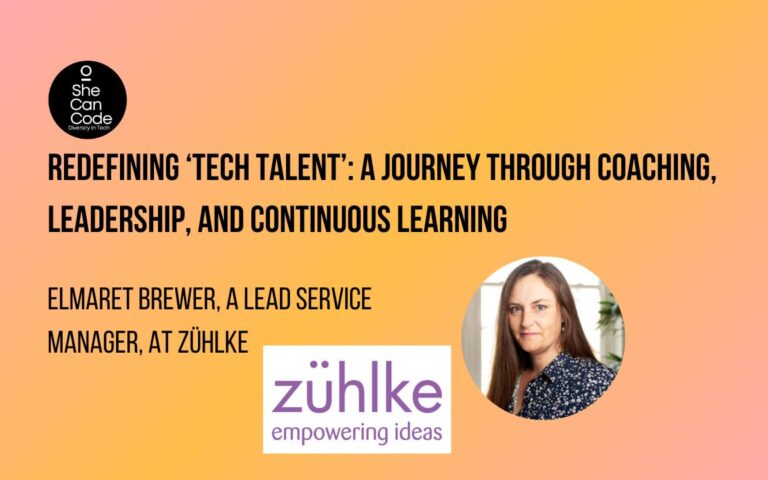What do you do now and what do you enjoy about it?
Primarily I’m Head of Marketing & Growth at tech for a good startup, Brevio. Essentially we have designed a matching software that connects the funding needs of charitable organisations with the criteria of a range of funders, including social impact investors, corporate foundations and traditional grant givers.
It combines my love of startups and transformation with a mission or purpose to my role. We’re a social enterprise, so our goal is to reduce waste and inefficiency for vital organisations. Having this clear goal for your technology and a clear audience that has a positive impact means you don’t get lost in what I like to call tech fade. This focus aligns with the principles outlined in Bridging the Gap: From Python to Scala with Quantexa, which showcases how clarity in purpose drives innovation.
What were the challenges that actually helped your career and how did you get through them?
Early on I was getting bored of the linear. All around me, I kept seeing people do the same thing day in, day out and I knew I didn’t want that for my career. I wanted to be across stakeholders and projects in different parts of the world. Fortunately, I came across a series of successful freelancers or contract hoppers and realised that tech careers don’t need to be like that. You can dip in any direction. You can try everything. I’ve been a product manager, a data analyst and a project manager. In all of these roles, the only part I seem to keep enjoying was anything that involved creating something new.
I realised by trying a bit of everything I sat better within the marketing and growth teams on any project.
I can translate project requirements from clients or the team easily back to a dev team because of my experience across the space. But my niche is the ability to get something off the ground and think outside the box with the whole team on what features, integrations or product partnerships could get it there. So I guess the challenge was not wanting to be boxed in, and the solution was being brave enough to not be.
What has surprised you in your career?
How everything is connected if you just stay open to it. I speak to everyone and constantly network, linking people up at later dates. By doing this you soon realise that the project or people you worked with five years ago is still serving you in this new opportunity over here now.
For me, having exposure to all types of people and businesses has not been a hindrance on my CV, it’s been a blessing in landing obscure opportunities.
Because of an analyst project I took with Amazon Web Services years ago it landed me a role setting up HIV data systems in Uganda years later. By working on an Airbnb startup system in Edinburgh, it took me to working on a guest booking website out of Portugal and Milan years later.
We are always told that consistency is key in jobs, and this is true in terms of the effort you put into anything. But it doesn’t necessarily mean staying in your lane or with a company because you think branching out of your known skill set might mess up advancing your career. It’s all experience under the belt, so go live it I say, and witness how tech really is across everything.
What advice would you give to someone early in their career?
Try to go to a big consultancy firm for a year or two. I started out as a junior consultant for a leading tech consultancy firm in New Zealand right out of Uni. It meant I had exposure to a wide range of industries like agriculture, banking and defence right out of the gate. I was shadowing some of the best tech management consultants in the business. I learnt how to conduct myself across a wide range of stakeholders, what my time was worth and client negotiation. I was tackling complex business technology problems across a vast landscape from CRM implementations to product discovery work. Although I personally discovered that this rigid structure doesn’t suit me as I like to take a more creative approach in my work, it really did serve me well early in my career and today I still draw on those methodologies I was taught back then.
What would help women to stay and progress in tech?
Being led or working alongside other powerful women. I’m fortunate to have come across some truly inspiring women in my career. My current founder was a senior at American Express back in the male-dominated days and went on to set up and run multiple successful tech enterprises. She sold her initial venture to Expedia and now she uses her money to fund philanthropic tech for good. She’s both fearless and funny. Another female coder I worked with in Sydney landed a major government contract for her social enterprise through sheer determination. Watching her present her ideas to rooms of male boards and investors with the same humour and enthusiasm she’d give her internal team, showed me that women can show up as their most authentic selves.
You don’t have to be ‘purposefully introverted or nonchalant’ as a coder. You don’t have to be ‘aggressive or detached’ as a project lead. You can be fun, you can be kind, you can be playful and you can use your whole feminine approach very powerfully to progress your career in tech and your life. We as women have a responsibility to lift each other up and inspire, no one else will do that for us.
Be intentional with who you work for. For me, asking why they hired you and making sure they align with your own values is absolutely key in work-life satisfaction.
Lessons from Chloe:

AUTHOR: Crystal Tse – SheCanCode Blog Squad







